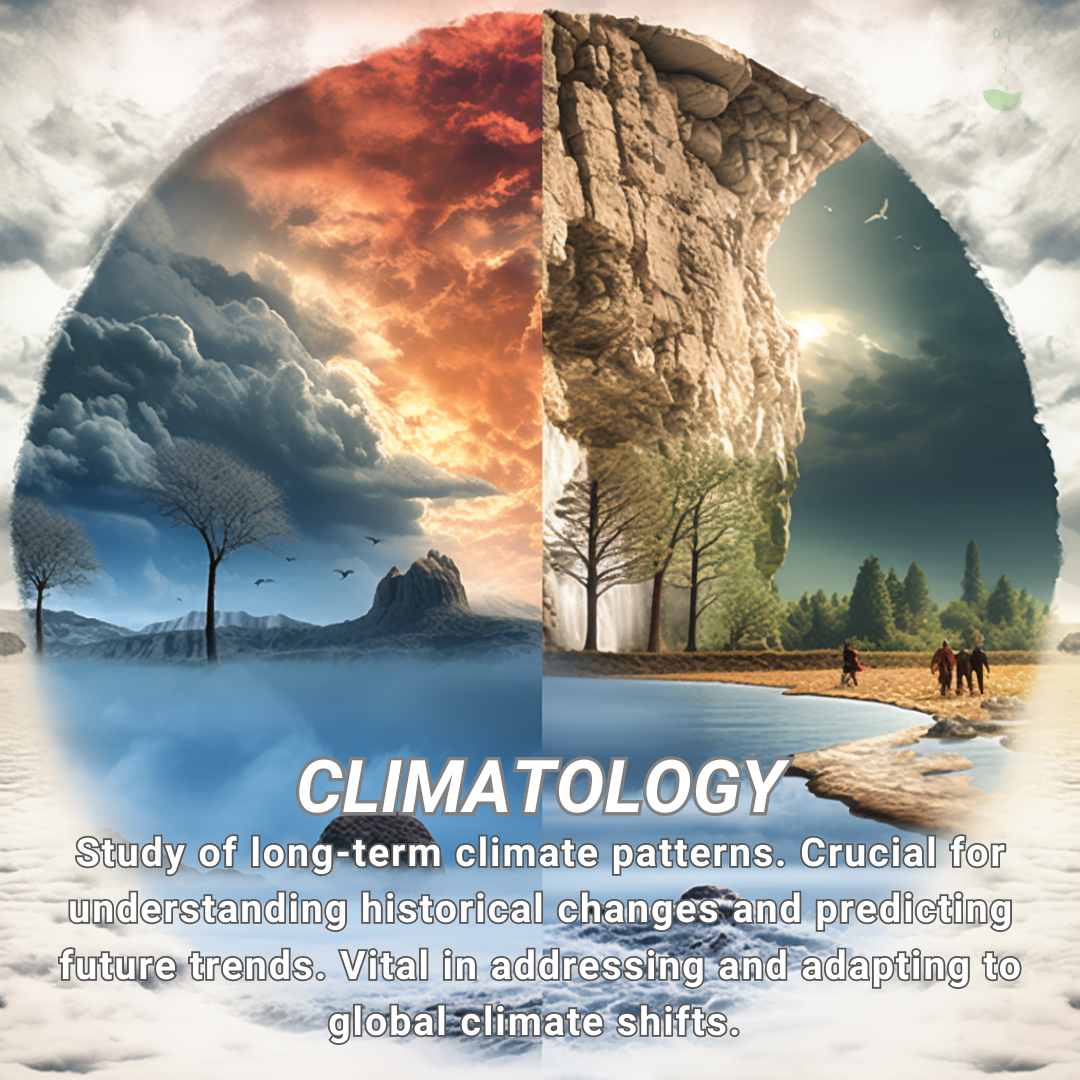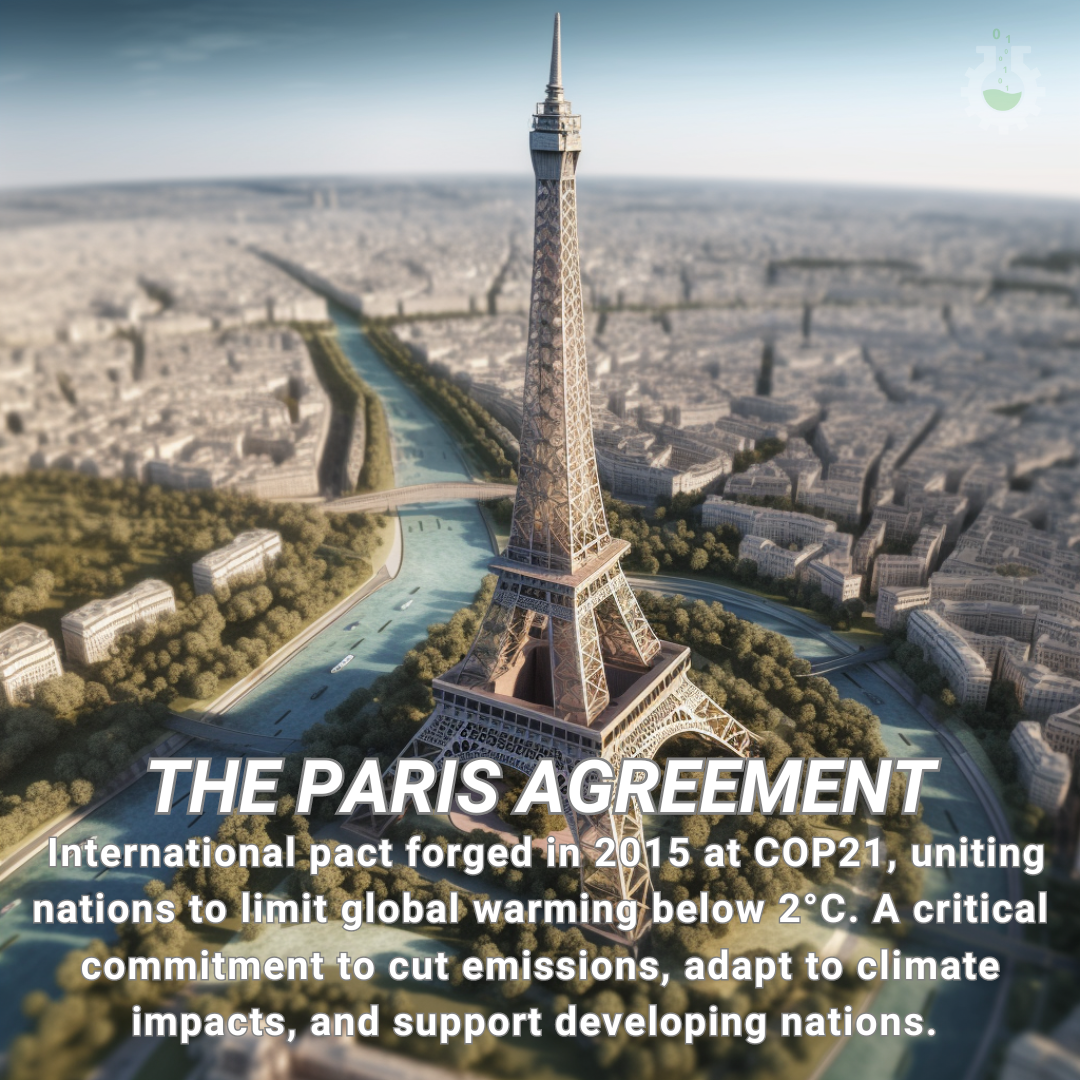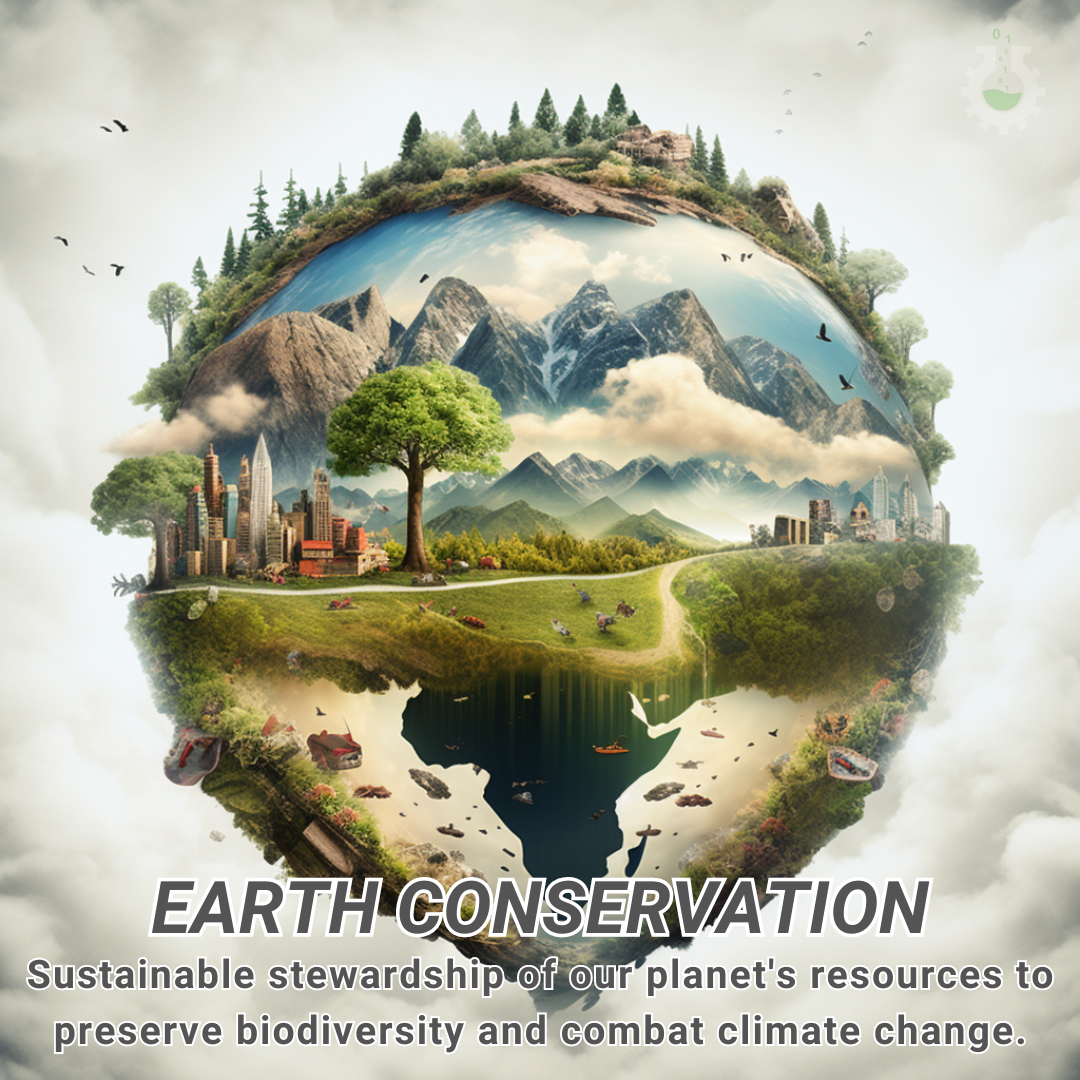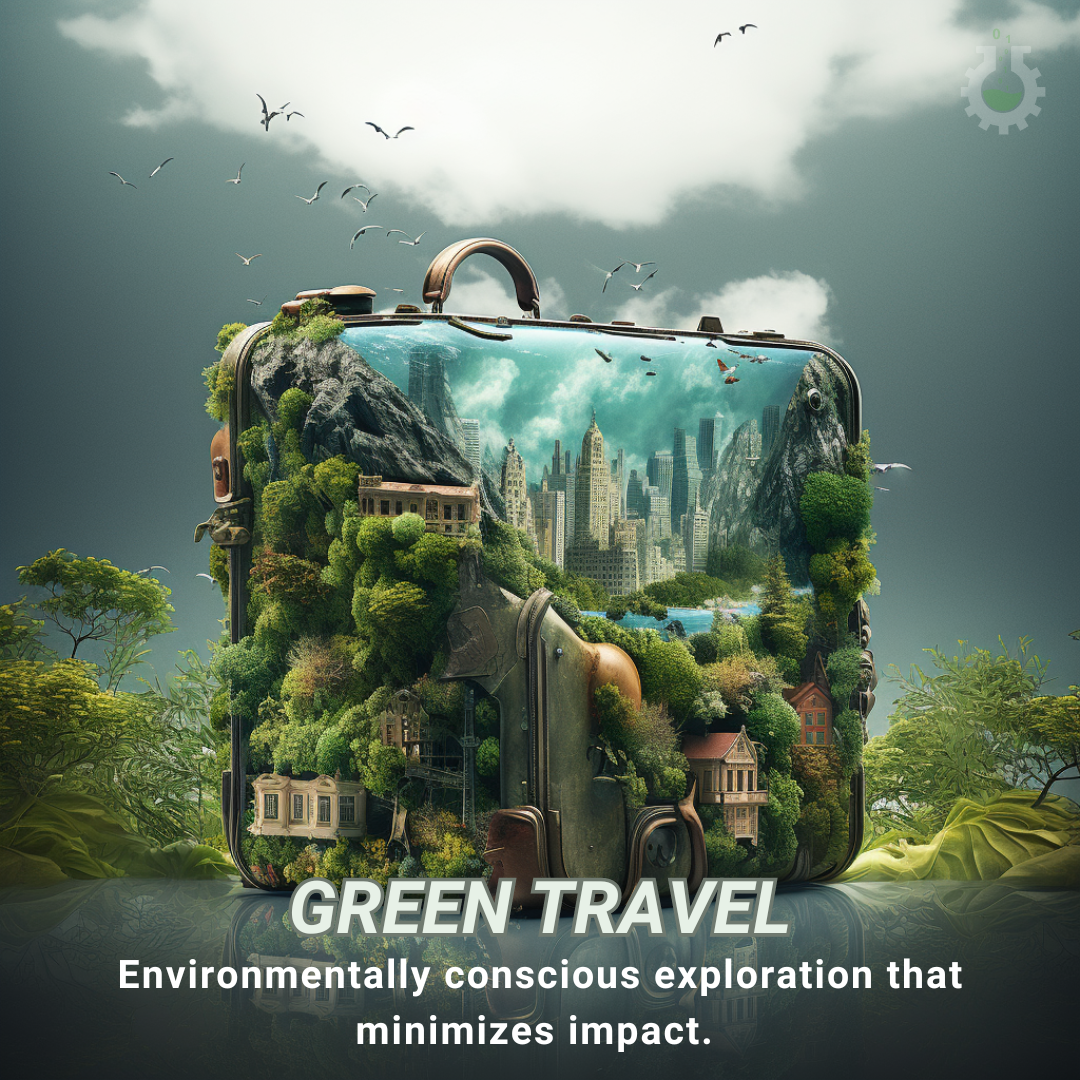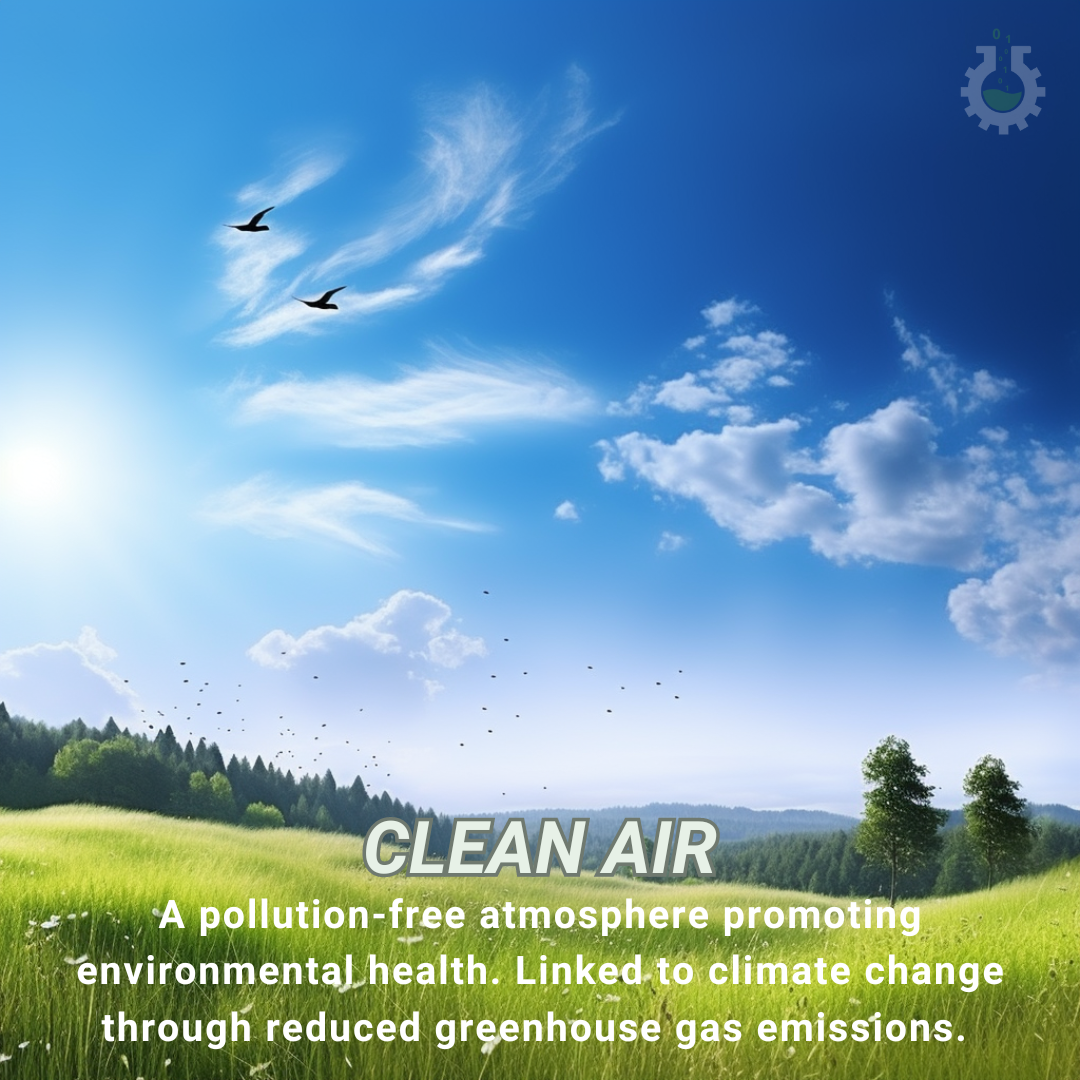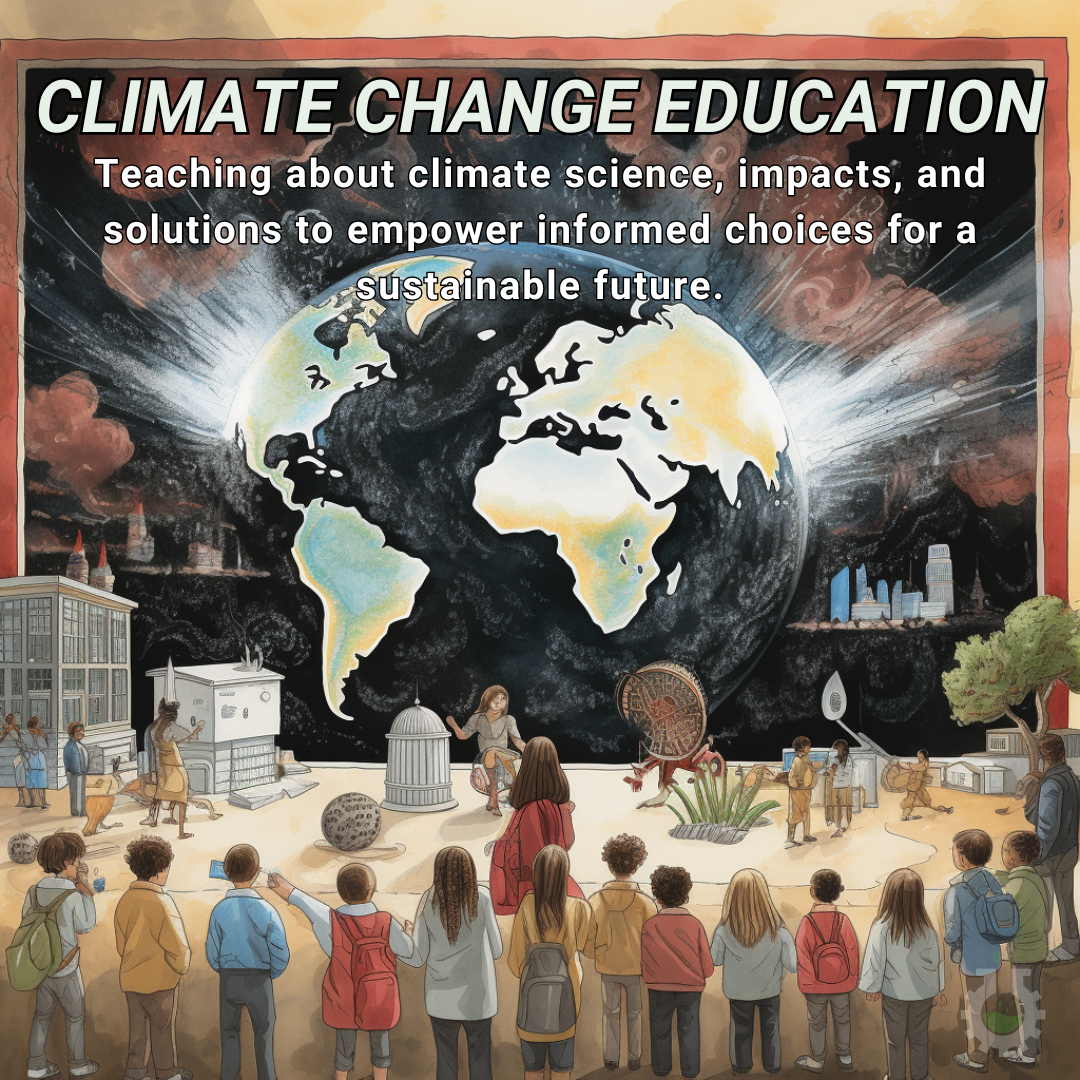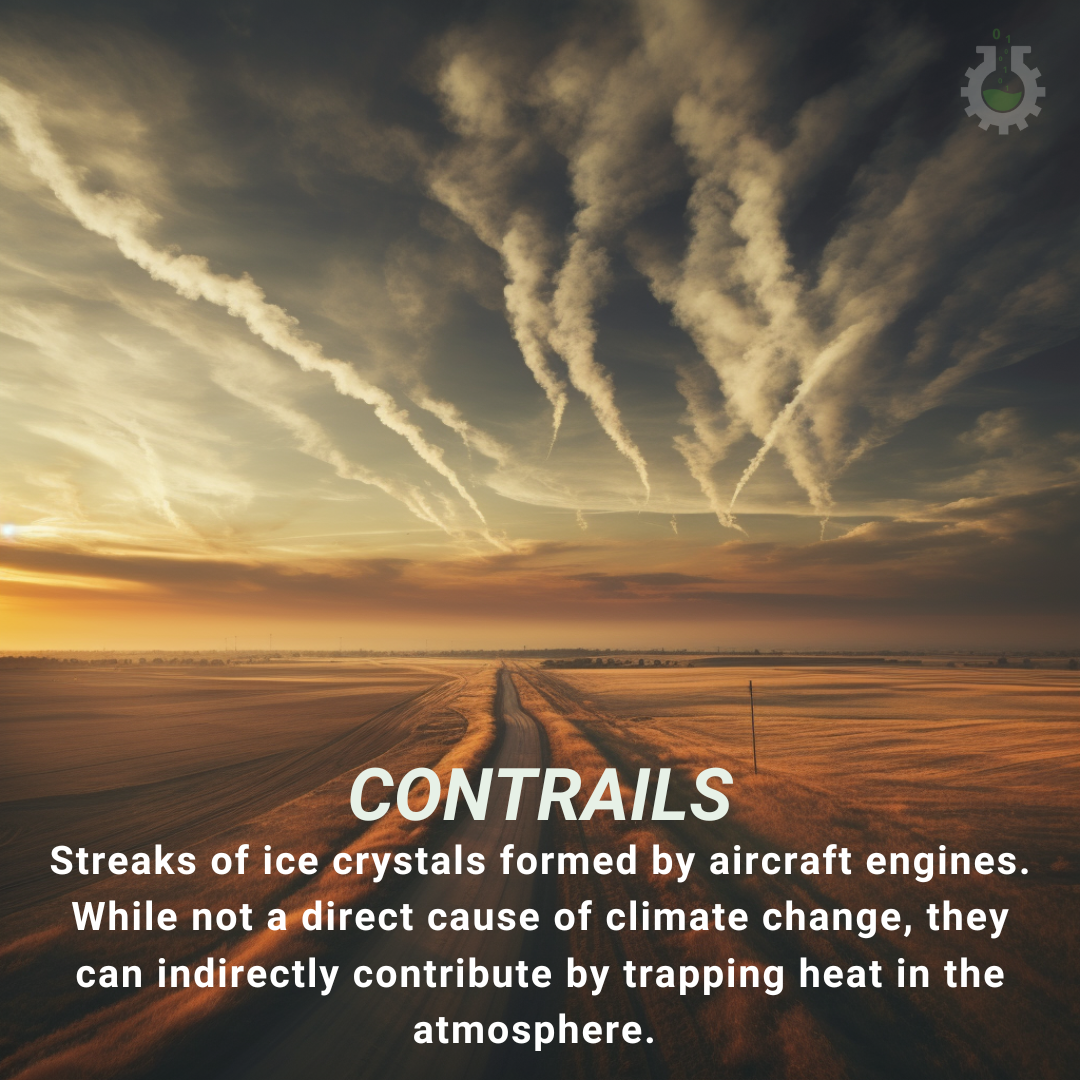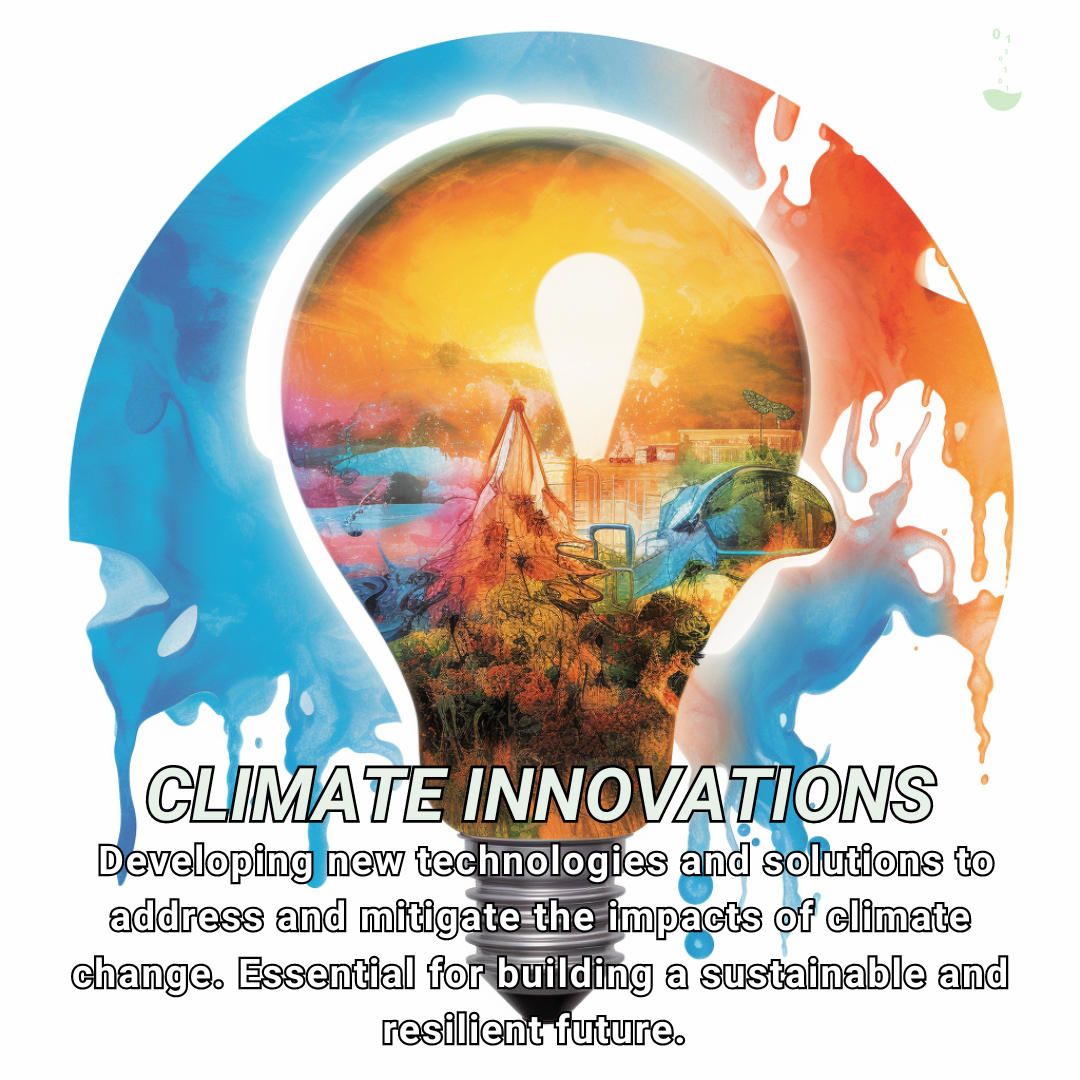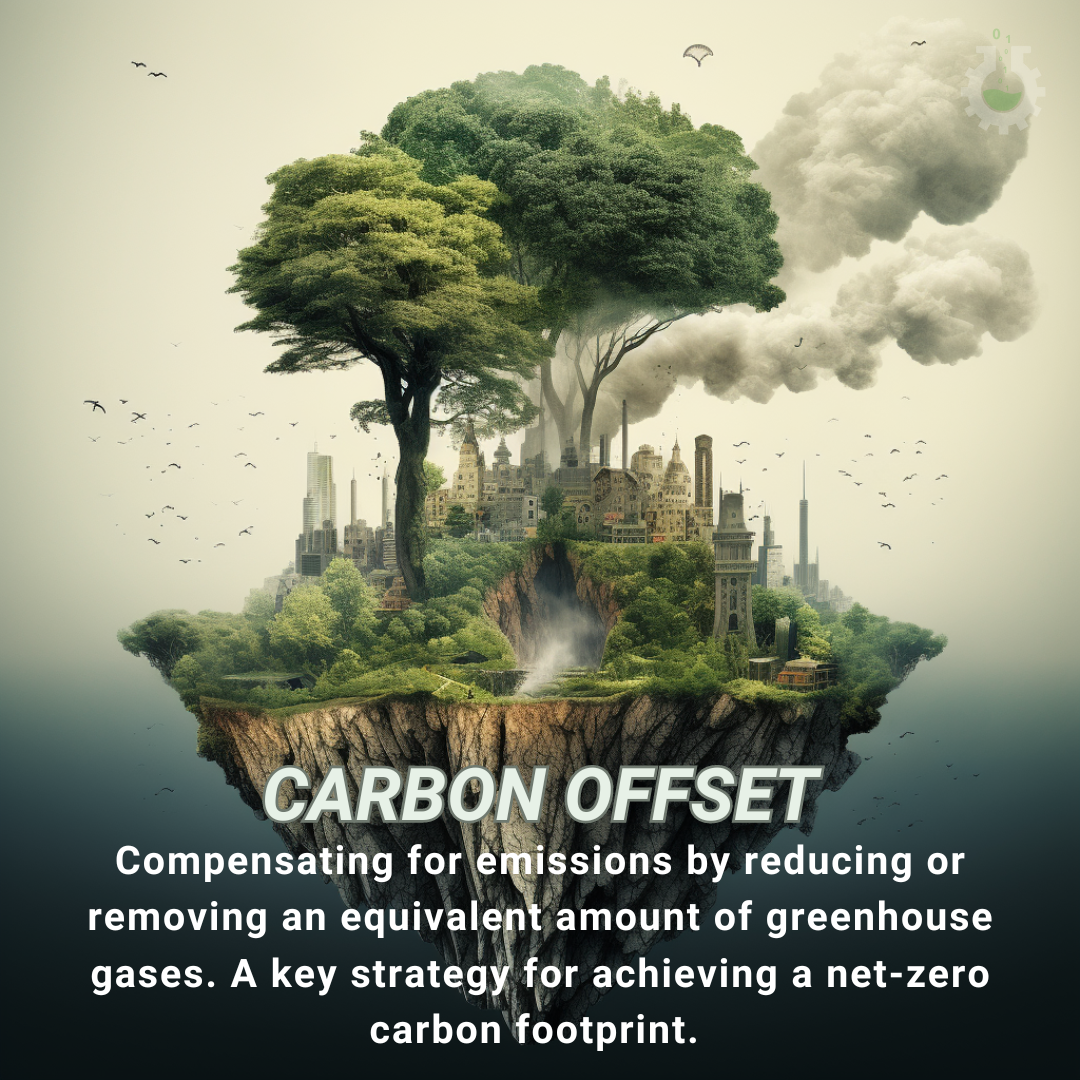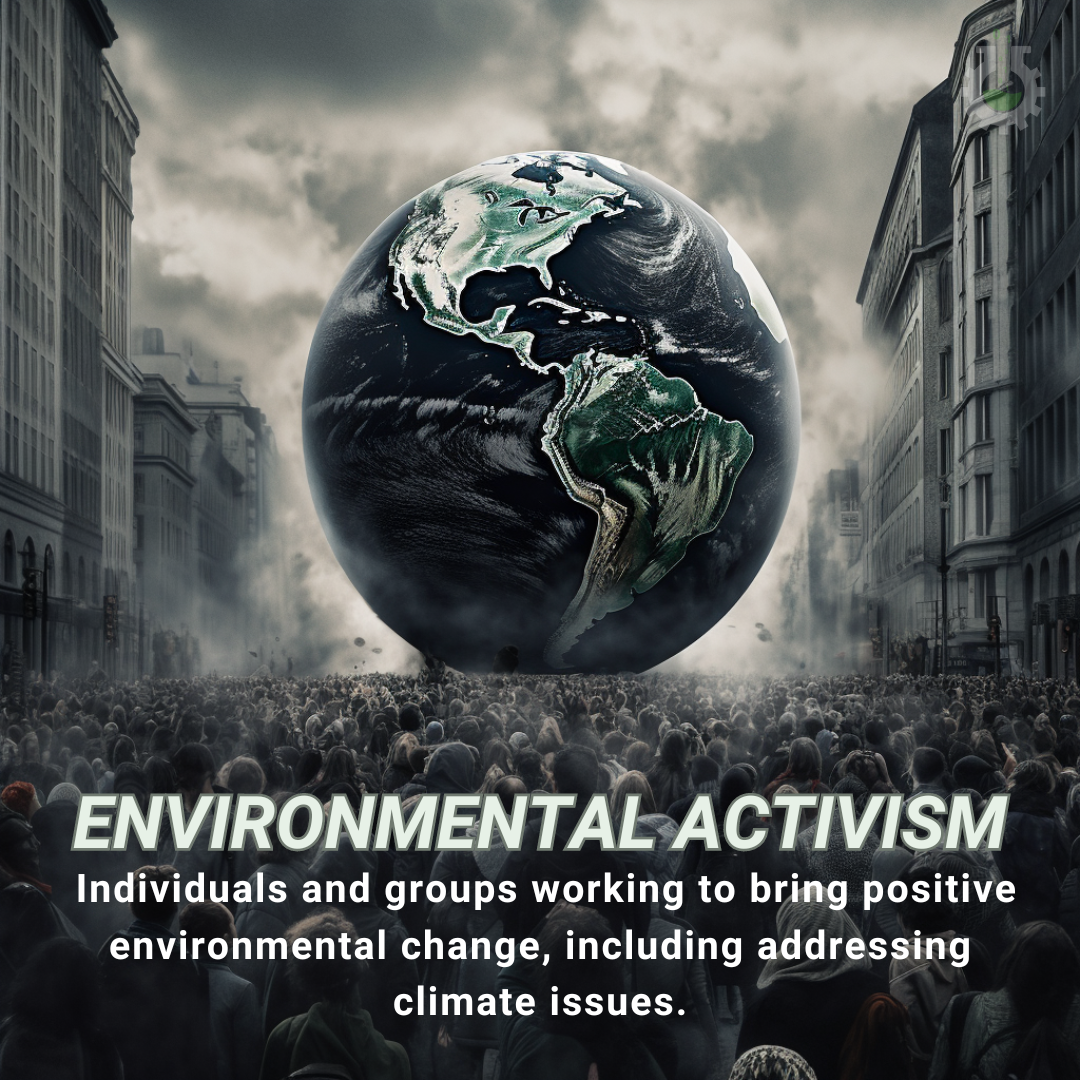Climatology: The scientific study of climate patterns, including long-term trends and variations in temperature, humidity, wind, and precipitation. It examines the Earth’s climate system, helping us understand historical climate changes and predict future trends. In the context of climate change, climatology plays a key role in assessing and responding to shifts in the global climate.
The Paris Agreement is an international treaty adopted in 2015 at the United Nations Climate Change Conference (COP21) held in Paris. Its primary goal is to limit global warming to well below 2 degrees Celsius above pre-industrial levels, with efforts to limit the increase to 1.5 degrees Celsius. Countries that are parties to the agreement […]
Earth Conservation: The deliberate and sustainable management of Earth’s resources, ecosystems, and biodiversity to ensure their longevity and health. It involves practices such as reforestation, habitat restoration, and sustainable land use, aiming to preserve the planet’s natural balance. Earth conservation is closely linked to climate change mitigation, as healthy ecosystems play a crucial role in […]
Green Travel is a sustainable and eco-conscious approach to exploring the world that minimizes the environmental impact. It involves choosing modes of transportation, accommodations, and activities that prioritize conservation, reduce carbon footprint, and promote responsible tourism practices. Green travel contributes to mitigating climate change by fostering environmental stewardship and supporting eco-friendly initiatives within the tourism […]
Clean Air: A state in which the atmosphere is free from pollutants and harmful particles, promoting a healthy environment. While clean air is a crucial aspect of environmental well-being, its direct connection to climate change lies in the reduction of greenhouse gas emissions. Ensuring clean air contributes to mitigating climate change impacts and fostering overall […]
Climate Change Education is a comprehensive approach to raising awareness and understanding of climate change, its impacts, and solutions. It involves teaching individuals about the science, impacts on ecosystems and communities, and the importance of sustainable practices. Climate change education empowers people to make informed choices, advocate for climate action, and contribute to building a resilient […]
Contrails, short for “condensation trails,” these are streaks of ice crystals or water droplets that form behind aircraft engines at high altitudes. While contrails themselves are not a direct cause of climate change, they can contribute to it indirectly. They trap heat in the atmosphere, acting like thin, high-altitude clouds. Their impact on climate depends […]
Climate Innovations – The development and implementation of new technologies, strategies, and solutions to address and mitigate the impacts of climate change. This encompasses a wide range of innovations, including renewable energy technologies, sustainable agriculture practices, carbon capture methods, and more. Climate innovation is essential for transitioning to a low-carbon, resilient future.
Carbon Offset is a reduction in greenhouse gas emissions or removal of carbon dioxide from the atmosphere to compensate for emissions produced elsewhere. This practice helps achieve a net-zero carbon footprint, supporting climate change mitigation efforts. Projects like reforestation or renewable energy initiatives are common methods for generating carbon offsets.
Environmental Activism is the advocacy and mobilization of individuals or groups to bring about positive environmental change. In the context of climate change, activists work to raise awareness, influence policies, and promote sustainable practices. They play a crucial role in pushing for urgent action to address the climate crisis and protect the planet’s ecosystems.


